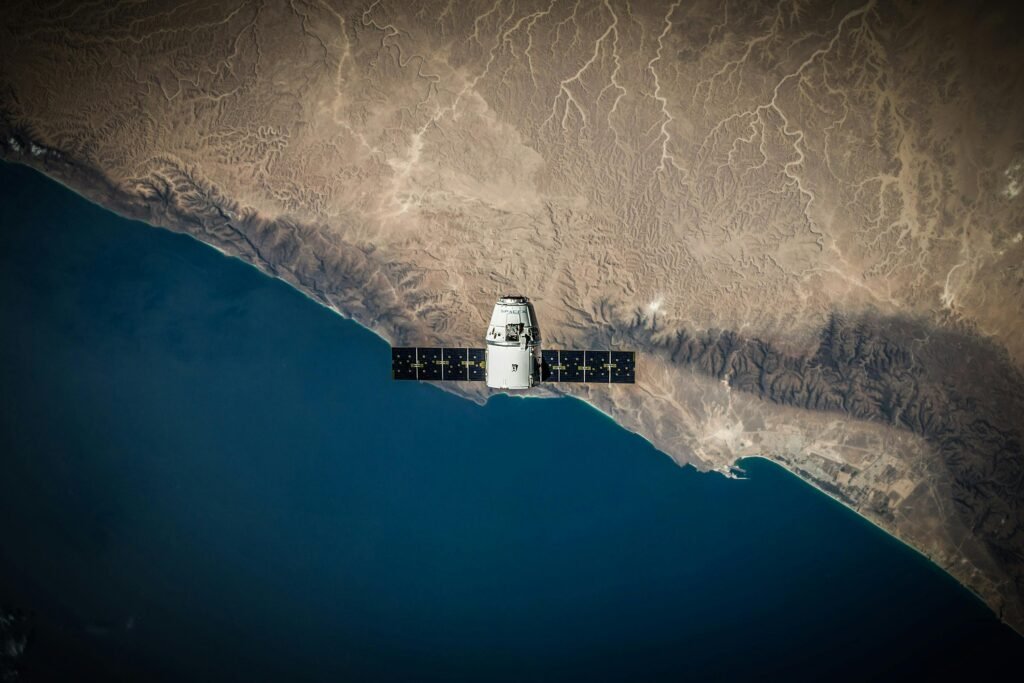
When we look up at the night sky, it’s hard to imagine that thousands of satellites are circling Earth right now. From GPS navigation to weather forecasting and global communication, satellites play an invisible yet crucial role in our daily lives. But have you ever wondered why satellites don’t simply fall back to Earth?
The answer lies in a delicate balance between two forces: gravity and speed.
Gravity’s Pull
Every object on Earth, including satellites, is affected by gravity. Gravity constantly pulls satellites toward the planet, just like it pulls apples from a tree. If gravity were the only force at play, satellites would crash into Earth in no time.
The Forward Speed
Satellites are launched into space at extremely high speeds, often thousands of kilometers per hour. This forward speed pushes them ahead while gravity keeps tugging them down.
Falling Around Earth
The combination of forward speed and Earth’s gravity creates a fascinating effect: instead of hitting the ground, satellites keep “falling around Earth.” Their trajectory curves along with the planet’s surface, which means they stay in orbit rather than colliding with the Earth.
The Perfect Balance
Orbit is essentially a state of balance. On one side, gravity tries to pull satellites closer to Earth. On the other side, the satellite’s inertia (its forward motion) tries to move it in a straight line. When these forces are perfectly aligned, the result is a stable orbit.
Everyday Impact
This simple yet elegant balance allows satellites to remain in space for years or even decades. Thanks to stable orbits, we can:
Navigate with GPS systems
Predict the weather accurately
Connect across continents through satellite communication
Final Thoughts
Satellites stay in orbit not because they escape gravity, but because they continuously balance between falling and moving forward. It’s a graceful cosmic dance that powers much of the modern world we live in today.
